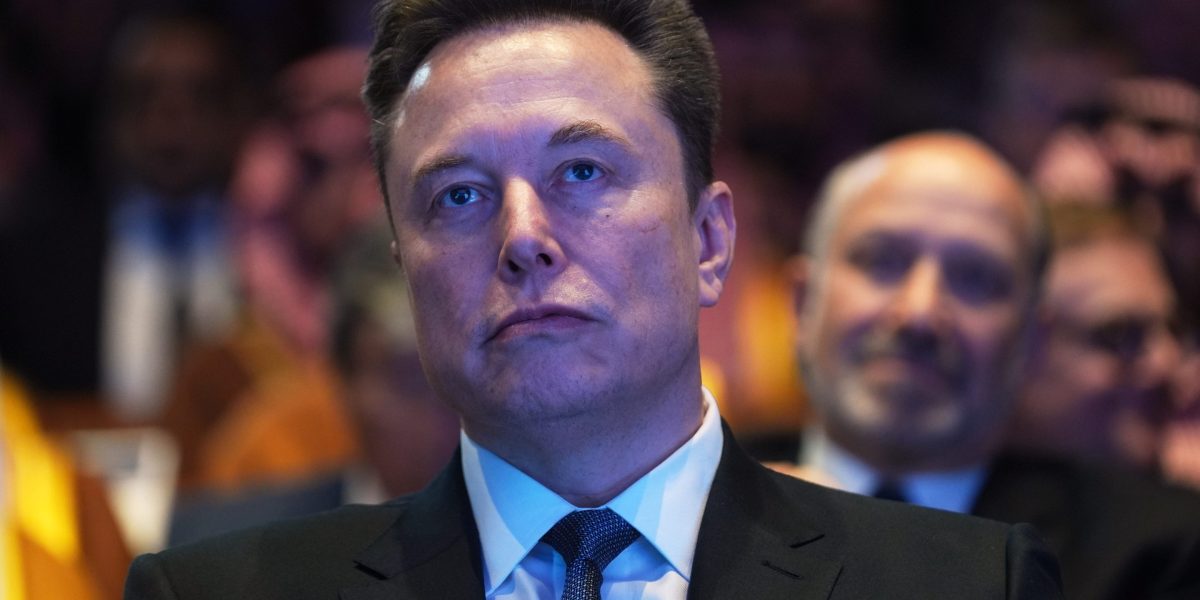Company: PepsiCo
Business: PepsiCo is one of the world’s largest consumer packaged goods companies, with a portfolio of some of the most iconic brands in food and beverage. Its brands include: Lay’s, Doritos, Cheetos, Gatorade, Pepsi-Cola, Mountain Dew, Quaker and SodaStream. Its segments include Frito-Lay North America (FLNA); Quaker Foods North America (QFNA); PepsiCo Beverages North America (PBNA); Latin America (LatAm); Europe; Africa, Middle East and South Asia (AMESA), and Asia Pacific, Australia and New Zealand and China Region (APAC). FLNA makes, markets, distributes and sells branded convenient foods, which include branded dips, Cheetos cheese-flavored snacks, Doritos tortilla chips, Fritos corn chips, Lay’s potato chips, and others. QFNA’s products include Cap’n Crunch cereal, Life cereal, Pearl Milling Company syrups and mixes, Quaker Chewy granola bars, Quaker grits, Quaker oatmeal and others. PBNA makes, markets and sells beverage concentrates and fountain syrups under various beverage brands, including Aquafina, Bubly, Diet Pepsi, Gatorade and others.
Stock Market Value: $211.28 billion ($154.32 per share)
Activist: Elliott Investment Management
Ownership: ~1.9%
Average Cost: n/a
Activist Commentary: Elliott is a multistrategy investment firm that manages about $76.1 billion in assets (as of June 30, 2025) and is one of the oldest firms of its type under continuous management. Known for its extensive due diligence and resources, Elliott regularly follows companies for years before making an investment. Elliott is the most active of activist investors, engaging with companies across industries and multiple geographies.
What’s happening
On Tuesday, Elliott sent a presentation and letter to the board of PepsiCo detailing the company’s opportunity to reaccelerate growth and improve performance through greater focus, improved operations, strategic reinvestment and enhanced accountability.
Behind the scenes
PepsiCo is one of the world’s largest consumer packaged goods companies, with a portfolio of some of the most iconic brands in food and beverage. Globally, the company is the number one player in snacking and the number two player in beverages trailing only Coca-Cola.
Pepsi is divided between its North America business (60% of revenue) and International (40%). Within North America, its segments are PepsiCo Foods North America and PepsiCo Beverages North America, each of which account for about 30% of the company’s total revenue. Frito-Lay North America, which makes up about 90% of PFNA, is the dominant leader in salty snacks and a consistent growth driver. PBNA has a portfolio of iconic brands, like its flagship Pepsi, Mountain Dew, and Gatorade, and a reach that rivals Coca-Cola in a very attractive and high-margin end market. Despite its scale, brand strength and track record of growth, Pepsi’s stock has underperformed, losing almost $40 billion in market cap over the past three years and trailing its benchmark, the S&P Consumer Staples Index, by 169 percentage points over the past 20 years.
Strategic missteps in the company’s core North America businesses are at the root of this underperformance. In 2010, both Coca-Cola and Pepsi acquired most of their bottlers. However, while Coca-Cola moved to refranchise its bottling business, Pepsi kept these vertically integrated. This decision has proven to be a costly mistake for the PBNA segment.
Prior to this strategic divergence, PBNA’s operating margins were 300 bps higher than Coca-Cola. Now, PBNA’s operating margins are 1,000 bps lower, reflecting the cost pressures that come with keeping these cost-intensive and lower margin operations in house.
PBNA’s second misstep was its response to the changes in consumer soda preferences. As soda consumption declined in the early 2000s, PBNA shifted its focus away from soda and towards healthier categories. While this was justified at the time, soda preferences have since stabilized, yet PBNA has not been reinvesting into soda. This lack of focus on its core products has had serious repercussions, including the delayed launch of Pepsi Zero Sugar and reduced investments in core brands like Mountain Dew. Moreover, instead of putting money into these proven brands and products, Pepsi has overextended into weaker brands like Starry, Rockstar, and SodaStream, while also expanding into other stock-keeping units, or SKUs, including limited-time offerings and flavor extensions, resulting in higher manufacturing and distribution costs. As a result, PBNA has around 70% more SKUs than Coca-Cola despite generating about 15% less in retail sales.
PBNA’s weaknesses have forced Pepsi to become increasingly dependent on PFNA, and its FLNA core, to sustain overall growth and meet performance targets.
In 2020, expecting increased demand from Covid, Pepsi began to pursue aggressive investment in PFNA, with capital expenditures rising from $3.3 billion in 2018 to $5.2 billion in 2022. There was some logic to this decision at the time, but the Covid-fueled growth didn’t last. Yet capex has continued to rise to $5.3 billion in 2024, despite FLNA sales actually contracting 0.5%.
To make matters worse, Pepsi was not just increasing capex, but selling, general and administraive costs as well and PFNA’s operating margins fell from 30% to 25% over this time period.
These problems have heavily weighed on Pepsi’s overall performance, as it has caused the market to largely overlook its prosperous international business, which is growing quickly with expanding margins. Once a premium growth offering, Pepsi currently trades at 18x P/E versus a ten-year average of 22x, and an over 4 turn discount to its benchmark compared to a historical 1.4 turn premium.
Elliott, who has announced a $4 billion position in PepsiCo, issued a letter and comprehensive presentation detailing its opportunity to reaccelerate growth and improve performance through greater focus, improved operations, strategic reinvestment and enhanced accountability. For PBNA, Elliott believes the first step is refranchising the bottling network. This move makes a lot of sense – returning to a system that historically outperformed its closest competitor – from the time PepsiCo refranchised its bottlers in 1999 until it repurchased them in 2010, the PepsiCo system significantly outperformed the Coca-Cola system.
Next is portfolio optimization. PBNA simply has too many products and needs to rationalize its SKU count and divest from underperforming brands. Elliott points to the recent sale of Rockstar to Celsius as a prime example of the opportunities that exist to simplify the portfolio.
Both of these steps should free up PBNA’s spending power, which Elliott believes should be reinvested in the core soda franchises and select new growth categories (i.e. protein and probiotics). For PFNA, given its significant deceleration in top-line growth, Elliott believes it is time to halt this aggressive growth strategy and realign its cost base and optimize the portfolio.
Elliott specifically points to Quaker as a potential divesture, highlighting its center of the plate products that rest outside FLNA’s snack core. Moves like these would allow PFNA to concentrate on areas where it has true competitive advantage, specifically in its FLNA products, as well as help restore margins and free up capital for reinvestment in both organic growth and accretive bolt-on M&A. Elliott believes that these changes to the North American business would not only improve the company’s operations but also help reset the greater Pepsi investment story.
Currently, this is a story of underperformance and poor execution, which has weighed down on the company’s valuation and left the international business overlooked and at a discount.
Specifically, Elliott believes that if this plan is implemented effectively, it can provide at least 50% upside to shareholders. Elliott is one of the most prolific activist investors today and has the resources and track record to influence meaningful change at these types of megacap companies.
But track record and resources are meaningless if you do not present a comprehensive plan that demonstrates a thoughtful path for long-term value creation, and Elliott’s 74-page presentation does just that.
Additionally, while activists are often unfairly stereotyped as short-term investors due in part to some who are occasionally correctly characterized that way, this presentation should be viewed as “Exhibit A” in how activists like Elliott have evolved over the years to be long-term minded in alignment with shareholders. Elliott’s plan includes recommendations like: “Reinvest to Revitalize Core and Grow with Focus,” “Pursue Organic and Inorganic Investment To Drive Long-Term Growth,” “then use the incremental proceeds from these actions to reinvest to drive long-term growth,” and “By right-sizing costs and shedding non-core assets, PFNA can unlock capital to reinvest both organically and inorganically to fuel long-term grow.”
In fact, in 74 pages, Elliott uses the word “reinvest” 54 times and not once uses the word “buyback” despite acknowledging how undervalued Pepsi shares are now. Yes, share buybacks now might be great for the short-term, but Elliott’s reinvestment plan is what will be best for the long-term.
For all of these reasons, it is hard to argue with Elliott’s analysis or recommendations and we would expect that shareholders and management agree with much, if not all, of it. Assuming that, the next step is execution of the plan and this might be the most understated, but important, part of Elliott’s presentation.
A good activist and good board members support management in executing their plan but holds them accountable if they fall short. That is exactly what we expect Elliott to do here. At this early stage, Elliott’s plan appears straightforward enough that we do not expect there to be much pushback, and governance changes do not seem necessary at this point to make an impact. That being said, we expect Elliott to continually monitor the situation and progress of management and hold them accountable if they fail to deliver on strategic actions and updated financial targets.
Ken Squire is the founder and president of 13D Monitor, an institutional research service on shareholder activism, and the founder and portfolio manager of the 13D Activist Fund, a mutual fund that invests in a portfolio of activist 13D investments.

























